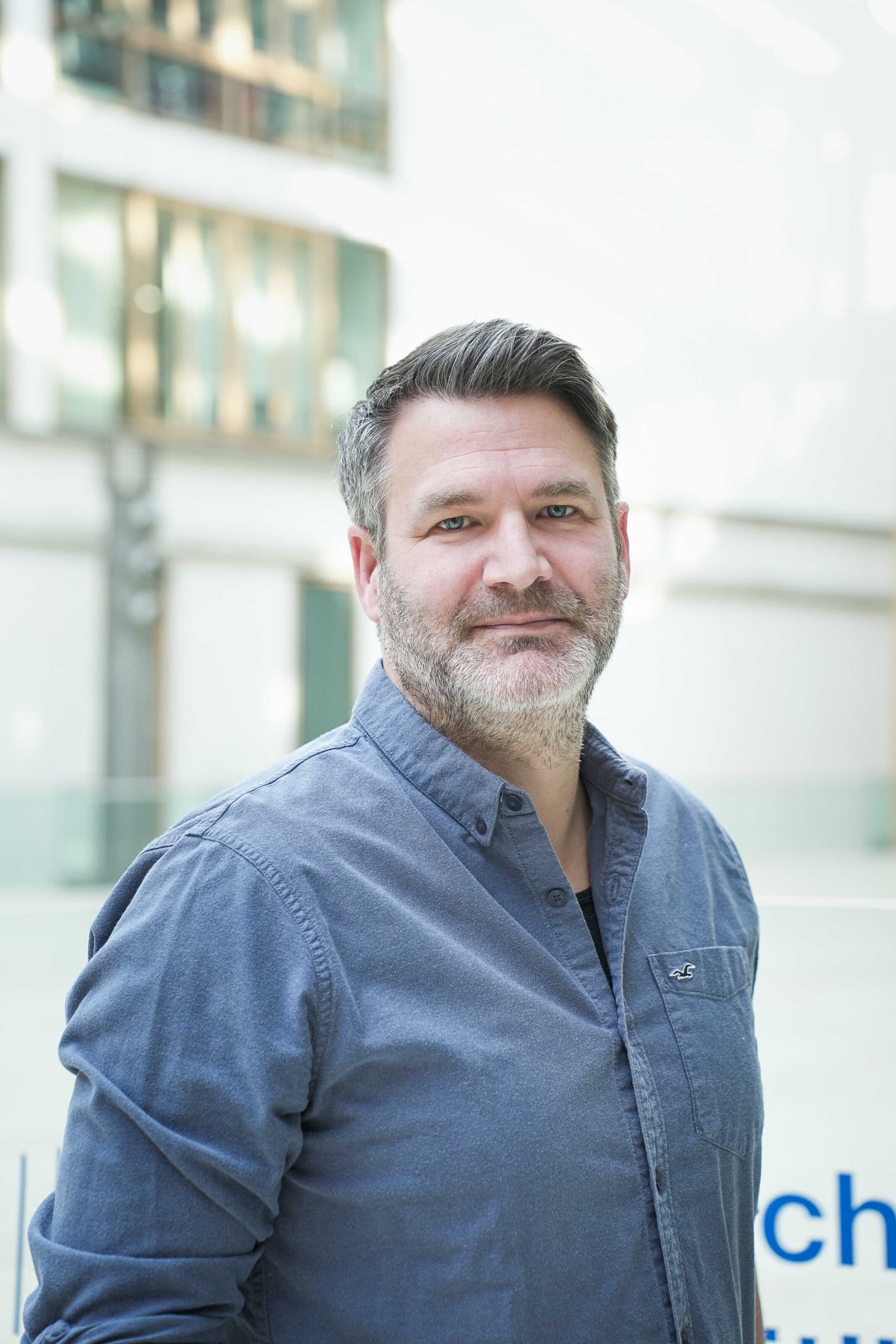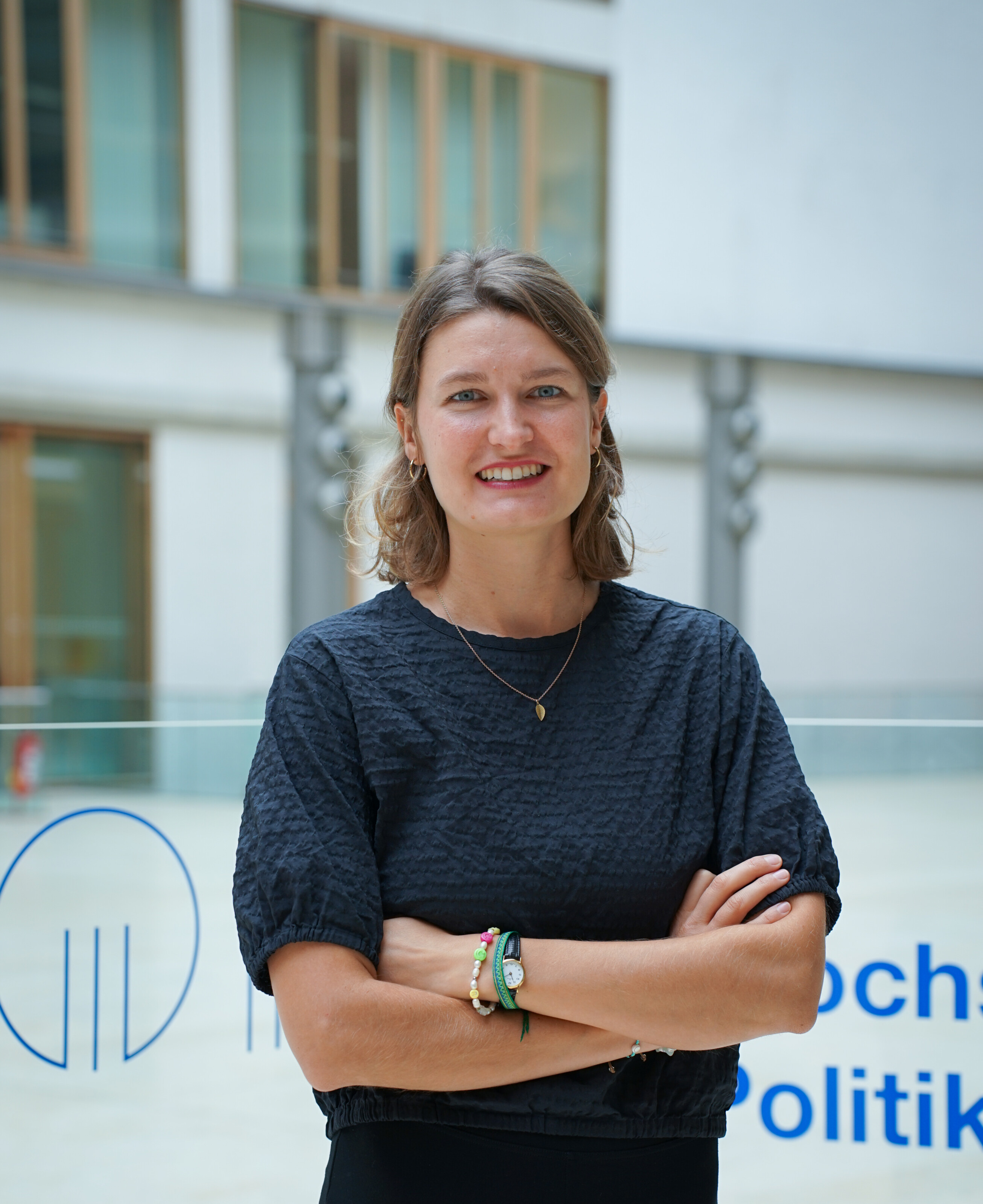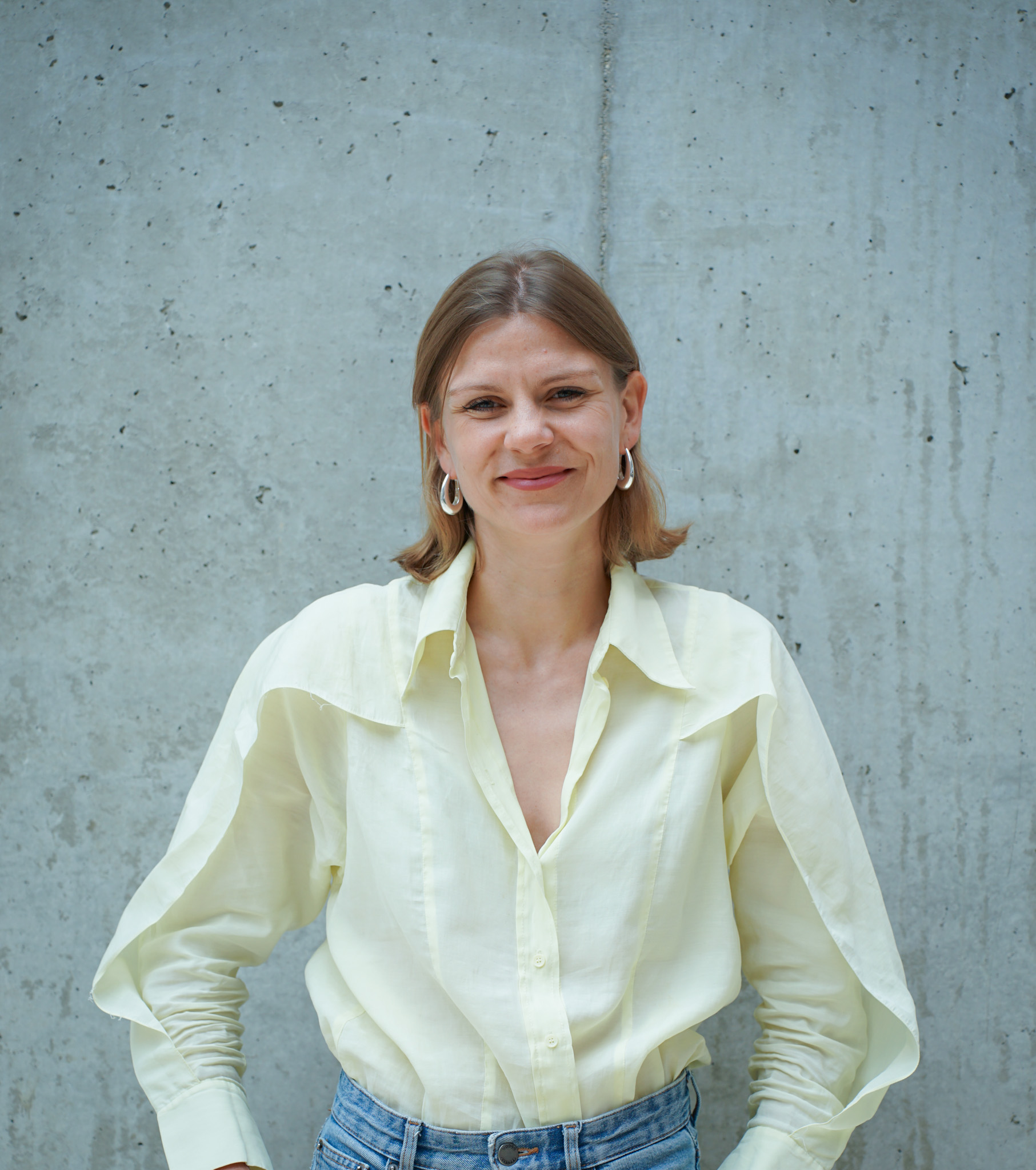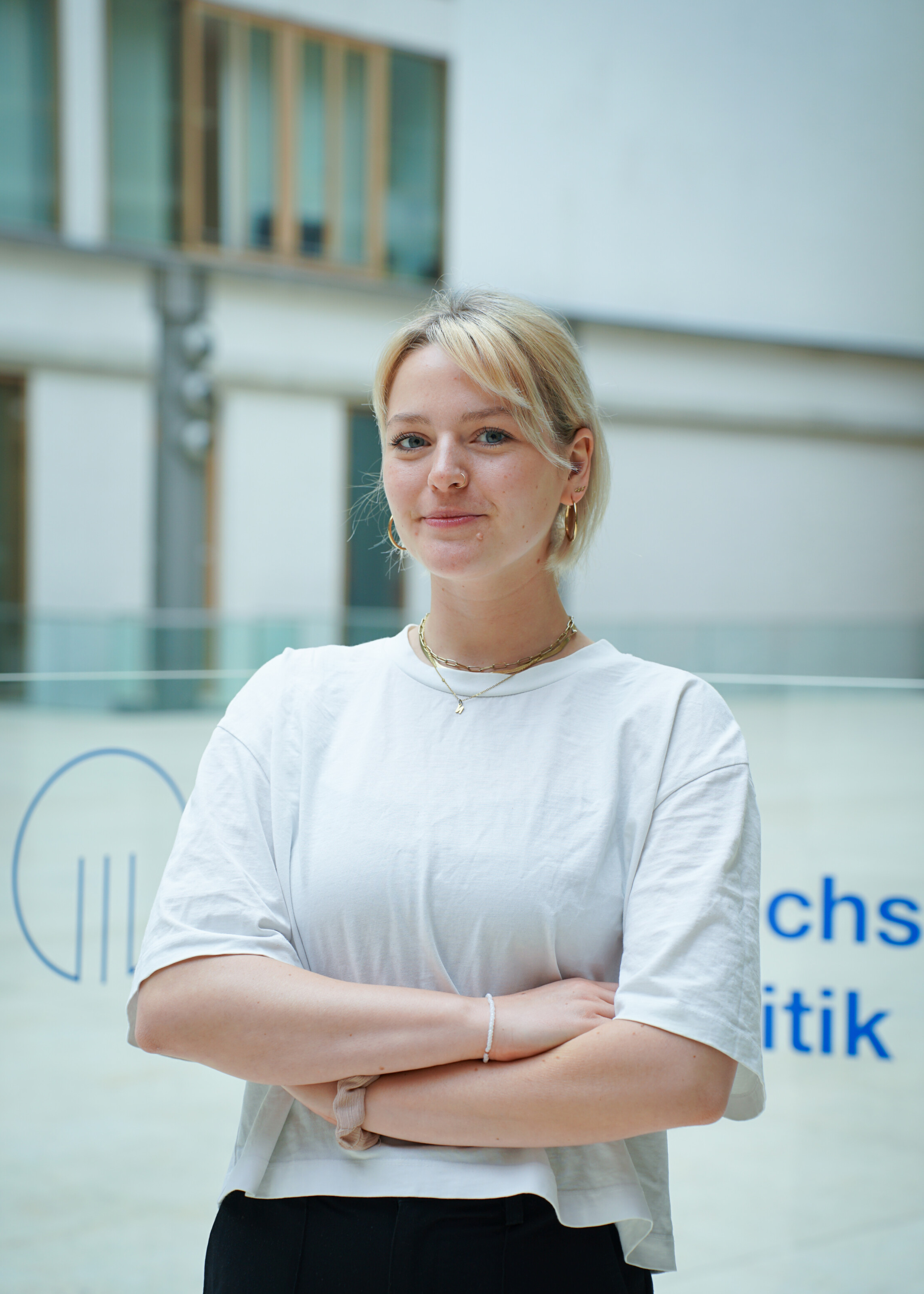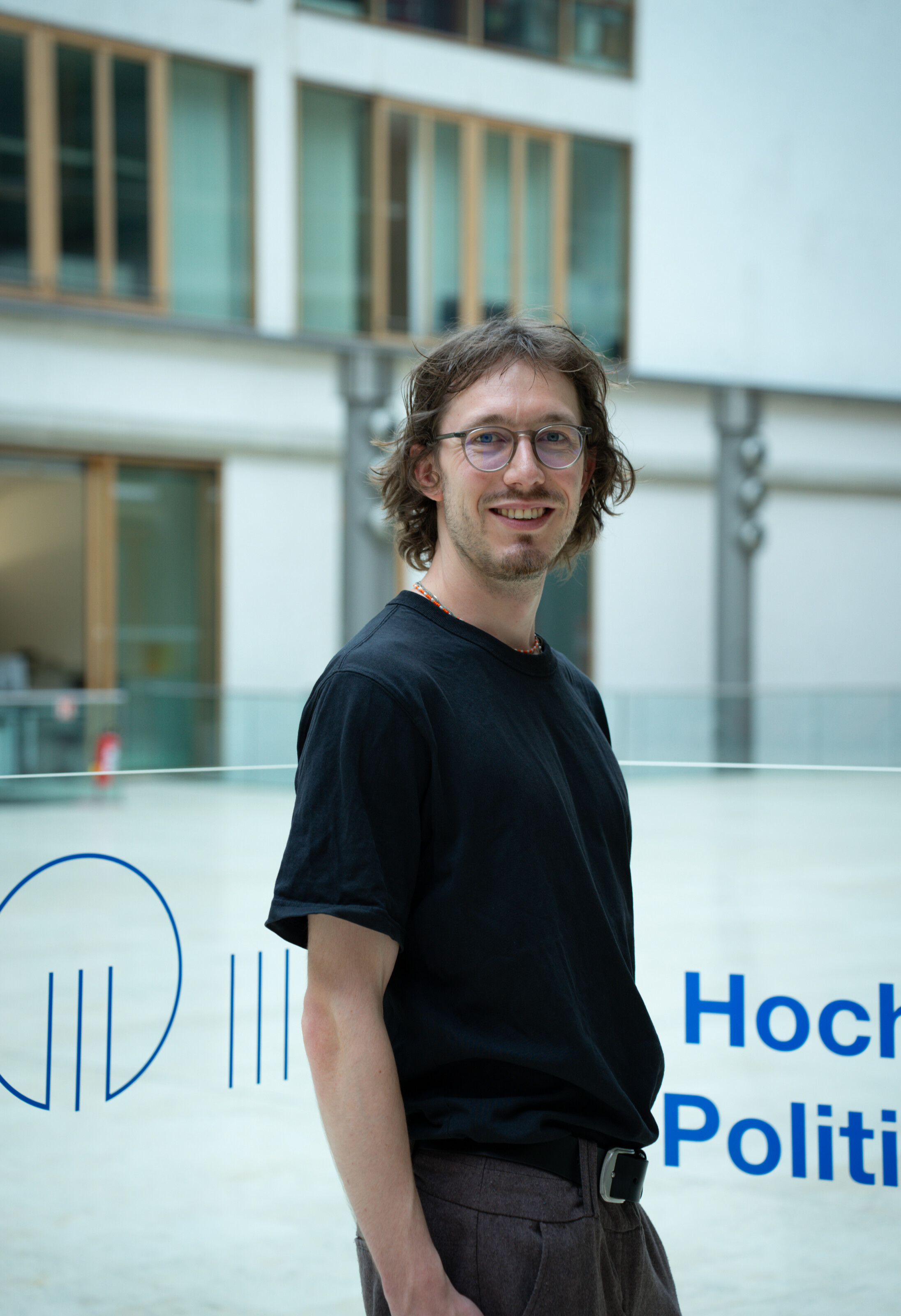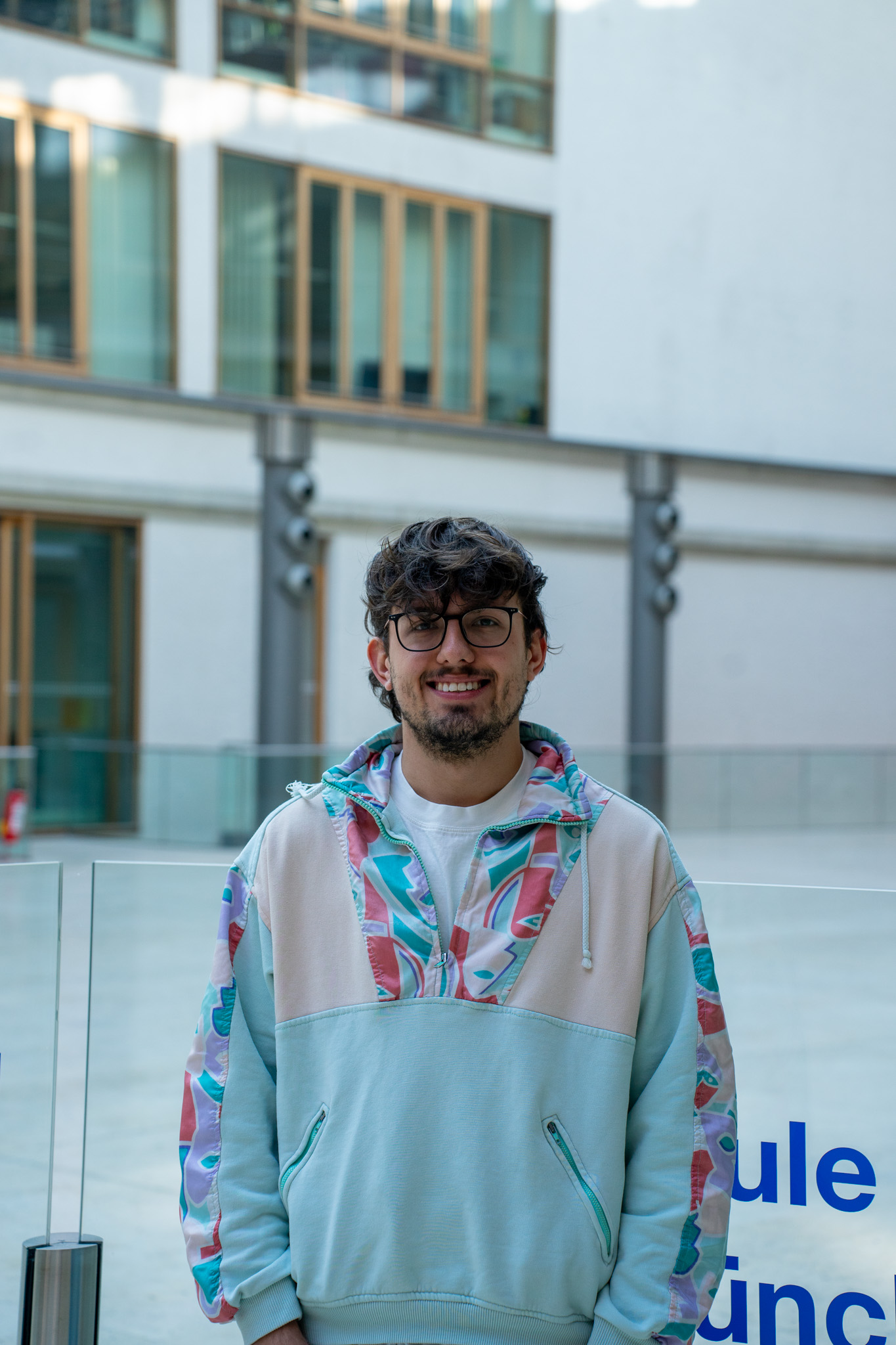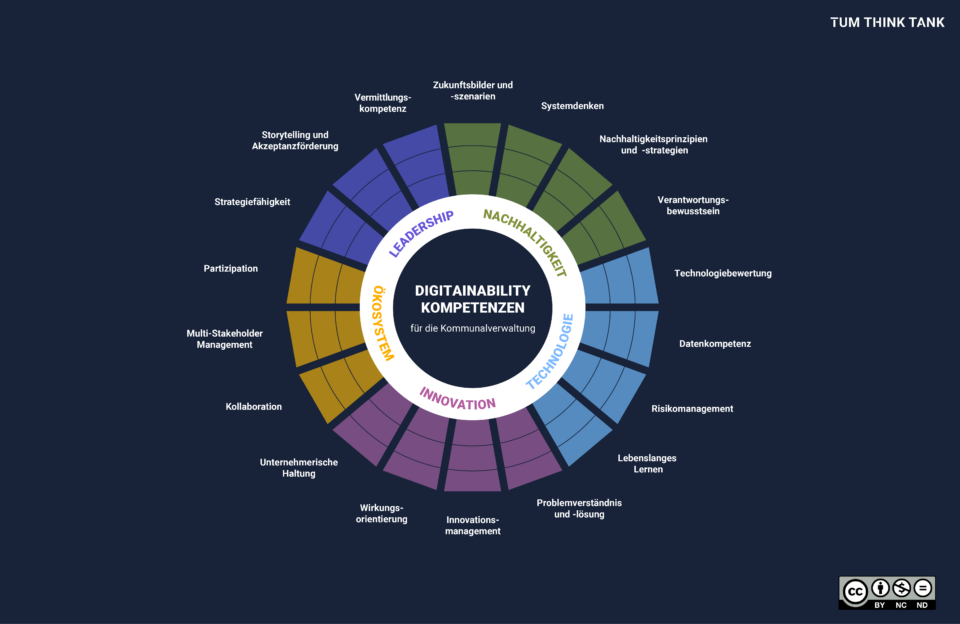
Empowering Cities for a Sustainable Digital Future.
Supporting German city administrations to drive the twin transition.
The Urban Digitainability Lab is a transdisciplinary lab focused on empowering municipalities to drive the sustainable and digital transition.
The Lab’s mission is to build bridges between city administrations, scientific communities, and other stakeholders to co-create scenarios, pathways, and capacities for transformative change in urban areas.
Why we exist
Cities are at the forefront of two monumental transformations: the digital and the sustainable transition. When integrated strategically, these transitions offer opportunities to combat climate change, improve public services, and enhance urban livability. Yet, many municipalities struggle to operationalize this “twin transition” due to siloed governance, resource limitations, and a lack of capacity.
The Urban Digitainability Lab addresses this implementation gap by equipping cities with the capabilities to align digital innovations with sustainability goals.
It aims to foster equitable digital spaces and ensure immersive innovation serves the public good.
How we work
The Lab operates as a transdisciplinary platform that brings together municipal actors, researchers, technologists, and civil society organizations. It fosters co-creation through applied research, peer-learning, and capacity-building formats.
The Lab’s four main program areas, Community of Practice, Academy Program, City-University Partnerships, and Impact Measurement enable cities to test and scale transformative solutions.
The Lab also operates across three thematic tracks: mobility, health, and urban livability, where digital tools and sustainability goals intersect most urgently.
What we do
- Facilitating Knowledge Sharing: The Lab fosters peer learning and exchange among cities and stakeholders by building communities of practice that accelerate collective progress in sustainable digital transformation.
- Developing Skills and Tools: The Lab creates tailored training modules for public servants to support them in navigating the twin transition and designs open educational resources to ensure broad dissemination.
- Fostering City-University Collaboration: The Lab rethinks interfaces between municipalities and academic institutions, enabling the transfer of scientific knowledge into practical urban solutions through formats like student clinics and solution forums.
- Supporting Transformative Leadership: The Lab partners with municipal actors to conduct applied research regarding impact assessment that addresses real urban challenges, producing actionable tools, publications, and frameworks for managing complex transition processes.
The Urban Digitainability Lab (UDL) contributes to the Local Financing Facility Munich project, led by the Transformation Finance Lab in collaboration with the City of Munich and Endeva. The Local Financing Facility Munich project co-designs an innovative financing mechanism that mobilises public, private, and philanthropic capital for Munich’s transition to climate neutrality by 2035. Its goal is to unlock local investment potential and create new forms of collaboration between city government, the financial sector, academia, and civil society. It runs from September 2025 to April 2026 and is funded through the NetZeroCities programme under theEU Mission “100 Climate-Neutral Cities.”
How to get engaged
The Urban Digitainability Lab invites city administrations, academic researchers, civil society organizations, and technology developers to join its mission. Opportunities exist for collaboration on pilot projects, co-designing training programs, participating in workshops, or contributing to thematic communities of practice.
For more information, reach out to Fiona.Breucker@tum.de .
Funding
The Mercator Foundation supports the implementation of the project at the TUM Think Tank in their area "Digitalized Society" with funding of approximately 1.3 million euros over three years. Carla Hustedt, head of the Digitalized Society area, emphasizes: "For the success of the digital transformation, it is necessary that the needs of the citizens are the focus. Against this background, we support actors who advocate for more transparency and participation in the actions of state actors. This project fits into this by attempting to align digital public services in urban areas more closely with sustainability goals and the needs of the citizens."
The Mercator Foundation is a private, independent, and non-profit foundation. Since 1996, it has been advocating for a supportive and participative society. To this end, it promotes and develops projects that improve opportunities for participation and cohesion in an increasingly diverse community. The Mercator Foundation is committed to an open, democratic Europe, a digital transformation of state and society oriented toward fundamental rights, and socially equitable climate protection.
Partners
- MCube EPURA (Consortium) & MCube ReMIX
- Coordination- and Transfer (KTS) Model Projects Smart Cities - Science Network & AEG Monitoring and Evaluation
- Bertelsmann Foundation (Center for sustainable communities)
